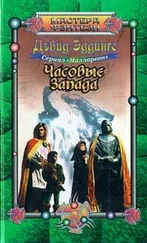Regina’s Song
David and Leigh Eddings

For Angela and Pat—
for providing theological and political advice
before they went back to Ireland.
Cover Page
Title Page Regina’s Song David and Leigh Eddings
PRELUDE
FIRST MOVEMENT ADAGIO
CHAPTER ONE
CHAPTER TWO
CHAPTER THREE
CHAPTER FOUR
CHAPTER FIVE
CHAPTER SIX
CHAPTER SEVEN
CHAPTER EIGHT
CHAPTER NINE
CHAPTER TEN
SECOND MOVEMENT DIES IRAE
CHAPTER ELEVEN
CHAPTER TWELVE
CHAPTER THIRTEEN
CHAPTER FOURTEEN
CHAPTER FIFTEEN
THIRD MOVEMENT APPASSIONATA
CHAPTER SIXTEEN
CHAPTER SEVENTEEN
CHAPTER EIGHTEEN
CHAPTER NINETEEN
CHAPTER TWENTY
CHAPTER TWENTY-ONE
FOURTH MOVEMENT AGNUS DEI
CHAPTER TWENTY-TWO
CHAPTER TWENTY-THREE
CHAPTER TWENTY-FOUR
CHAPTER TWENTY-FIVE
CHAPTER TWENTY-SIX
CHAPTER TWENTY-SEVEN
CHAPTER TWENTY-EIGHT
CHAPTER TWENTY-NINE
CODA
By David Eddings
Copyright
About the Publisher
Les Greenleaf and my dad, Ben Austin, had served in the same outfit during the Vietnam War, and twenty-five years later they could spend whole afternoons swapping war stories. They both grew up in Everett, a town thirty miles north of Seattle. And they both worked at the same place, since my dad was a sawyer at Greenleaf Sash and Door, Inc.
Aside from that, they couldn’t have been much more opposite. Les Greenleaf was a Catholic, a Republican, and a member of the National Association of Manufacturers. My dad was a Methodist, a Democrat, and a member of the AFL-CIO. Les Greenleaf had investments, and Ben Austin lived from paycheck to paycheck. They were on opposite sides of just about any fence you could think of.
“Buddyship,” though, tends to jump over all kinds of fences. I guess that when people are shooting at you, you get attached to the guy who’s covering your butt.
Back during the late sixties, staying out of the army and the war in ‘Nam had been every young man’s major goal in life. Rich kids could get a student deferment if they were smart enough to get into college, but working-class kids had to take their chances.
Les and my dad both graduated from high school in 1967. My dad promptly married pretty Pauline Baker, his high-school sweetheart and went to work at Greenleaf Sash and Door.
Les Greenleaf enrolled in the University of Washington, joined a fraternity, and majored in parties. He flunked out at the end of his sophomore year.
My dad had evidently had a little spat with mom, and just to show her how independent he was, he enlisted in the army—something he might not have done if he’d been completely sober. He was, however, sober enough to sign on for only two years rather than the customary six.
As it turned out, Les Greenleaf was inducted on the same day, so they started out together. My mom had been pregnant—with me—during her little argument with dad, which might have explained why she’d been so grouchy.
Anyway, Ben and Les went off to war, and mom stayed home and sulked.
I was about a year and a half old when they got out of the army, and I was among the guests at the wedding of Mr. Lester Greenleaf and Miss Inga Wurzberger. I was the one who slept through the whole ceremony. Inga was obviously of German extraction—Bavarian, I think—and she’d been a sorority girl at U.W. while Les was concentrating on cutting classes. The wedding had taken place in a Catholic church, and I guess my dad had been a little uncomfortable about that—but buddyship prevailed.
Inga and my mom got along well together, and starting back when I was still a toddler, we often visited the Greenleafs in their fancy home in a posh district of Everett. Since I was absolutely adorable in those days, I was always the center of attention during those visits, and I thought that was sort of nice.
My time in the limelight came to an abrupt halt in 1977 when Inga blossomed and bore fruit—a pair of twin girls, Regina and Renata, who definitely outclassed me on the adorability front. As I remember, I was fairly sullen about the whole thing.
Regina and Renata were identical twins—so identical that not even Inga could tell them apart—and when they first started talking, it wasn’t English they were speaking. I’m told it’s not uncommon for twins to have a private language, but “twin-speak” is supposed to fade out before the pair get into kindergarten. Regina and Renata kept their private dialect fully operational all the way into high school.
There was a whacko social theory at that time to the effect that twins would grow up psychotic if they were dressed alike. Inga blithely ignored it and followed the ancient custom of putting the girls in identical dresses every morning, the sole difference being a red hair ribbon for Regina and a blue one for Renata. She carefully checked their little gold name bracelets every morning to be certain she wasn’t getting them mixed up. I think it was those hair ribbons that set the girls off on what the Greenleafs called the twin-game. Regina and Renata swapped ribbons three or four times a day, and as soon as they learned how to undo the clasps on their name bracelets, all hope of certainty went out the window.
Those two had all sorts of fun with that twin-game, but now when I think back, maybe they were trying to tell us something. The pretty little blond girls had no real sense of individual identity. I don’t think either one ever used the word “I.” It was always “we” with Regina and Renata. They’d even answer to either name.
That bugged their parents, but it didn’t particularly bother me. My solution to the “identification crisis” was to simply address them indiscriminately as Twinkie and to refer to them collectively as the Twinkie Twins. That made the girls a little grumpy right at first, but after a while it seemed to fit into their conception of themselves, and they stopped using their given names and began to address each other as either Twinkie or Twink—even when they were using their private language.
In a peculiar way, that got me included in their private group. Our families were close to begin with, and because I was seven years older than they were, the chubby, golden-haired twins looked upon me as a big brother. I had to tie their shoes, wipe their noses, and put the wheels back on their tricycles when they came off. Every time they broke something they’d assure each other that “Markie can fix it.” Every now and then, one of them would slip and say something to me in twin-speak, and they always seemed a little disappointed and even sad when I didn’t understand what they were saying.
As their official surrogate brother, I spent a lot of my childhood and early adolescence in the company of the Twinkie Twins, and I learned to ignore their cutesy-poo habit of whispering to each other, casting sly looks at me, and giggling. By the time I moved up into high-school—an event most adolescents view as something akin to a religious experience—I was more or less immune to their antics.
In May of my sophomore year, I turned sixteen and got my driver’s license. My dad firmly advised me that the family car was not available, but he promised to check at the union hall for job opportunities for young fellows in need of a summer job. I wasn’t too hopeful, but he came home with an evil sort of grin on his face. “You’ve got a job at a sawmill, Mark,” he told me.
Читать дальше













